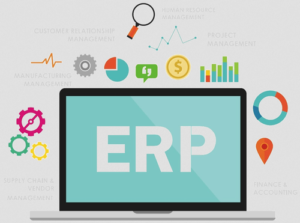 Success with ERP Comes with An Organizational Capital Price Tag
Success with ERP Comes with An Organizational Capital Price Tag
In the dynamic landscape of modern business operations, Enterprise Resource Planning (ERP) systems stand as pillars of efficiency and collaboration. The allure of improved process automation, streamlined information sharing, and enhanced customer service propels organizations towards embracing ERP solutions. Despite the promising returns, the journey towards successful ERP implementation is rife with challenges, hence the recurrent theme of the “ERP Challenge.”
Inevitability of the ERP challenge
The staggering $34.4 billion in total software revenue generated by ERP in 2017 underscores its significance in the corporate realm. Yet, alongside this immense value lies a complex tapestry of hurdles that can impede progress and jeopardize ROI. The persistence of high failure rates and substantial costs associated with ERP projects serves as a stark reminder of the formidable ERP Challenge that organizations must confront. Acknowledging the inevitability of challenges within any ERP implementation endeavor is the first step towards navigating this intricate terrain effectively. By embracing awareness and foresight, organizations can preemptively address potential risks, thereby mitigating adverse outcomes and optimizing resource allocation.
Variability in ERP Implementation Methods
Practitioner case studies and research findings underscore the variability in ERP implementation methods and practices. Some approaches yield commendable results, while others lead to substantial resource drains and project setbacks. The prevalence of “redos” and course corrections highlights the dire consequences of inadequate planning and execution in ERP projects. Alarmingly, statistics reveal that between 50 to 75 percent of US firms encounter varying degrees of failure in their ERP endeavors, painting a sobering picture of the ERP Challenge. At the core of successful ERP implementation lie multifaceted components encompassing business analysis, modeling, re-engineering, software selection, organizational culture management, training, and effective and efficient ERP project management. Each element plays a pivotal role in shaping the trajectory of ERP initiatives, demanding meticulous attention and strategic alignment. Each ERP software vendor, Implementation partner, and ERP consulting firm has their own “ERP Project Plan”, beware and pay close attention…success is in the details!
To Emphasize: Look Beyond Tangible Project Elements
However, beyond the tangible ERP project mechanics, lies a realm of intangible influences that exert a profound impact on ERP success. Organizational leadership, learning culture, and transformative mindset emerge as critical determinants in navigating the ERP Challenge. The ability to recognize and prioritize these influences alongside traditional project management endeavors is instrumental in fostering a conducive environment for ERP assimilation and organizational change. Embrace the imperative. Mastering the ERP Challenge requires a holistic approach that transcends conventional project management paradigms. Organizations must cultivate a culture of adaptability and innovation while fostering a deep-seated commitment to organizational learning and transformation. By synergizing tangible project elements with intangible cultural drivers, enterprises can fortify their resilience against the uncertainties inherent in ERP implementation.
The “ERP Project” Family Tree Has Not Changed Much Since The 90’s
As the ERP landscape continues to evolve, embracing the ERP Challenge becomes not merely a necessity but a strategic imperative for organizations aspiring to thrive in the digital era. By confronting challenges head-on, organizations can unlock the full potential of ERP solutions, driving sustainable growth and competitive advantage in an increasingly dynamic marketplace. The ERP Challenge serves as a crucible through which organizations can forge enduring success and resilience. By embracing awareness, agility, and strategic foresight, enterprises can navigate the complexities of ERP implementation, turning challenges into opportunities for innovation and growth.
Nestell & Associates, The ERP Consulting Leaders
